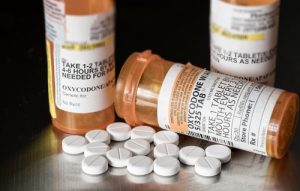
U.S. Reps. Barbara Comstock (R-VA), Evan Jenkins (R-WV) and Brian Fitzpatrick (R-PA), members of the Bipartisan Heroin Task Force, introduced legislation last week to restore the Drug Enforcement Administration’s authority to pursue drug distributors in drug diversion control investigations.
The Restoring Enforcement Standards to Track Opioids Responsively and Effectively (RESTORE) Act of 2017 would roll back the Ensuring Patient Access and Effective Drug Enforcement Act of 2016, a law that curtailed the DEA’s authority to take enforcement action against irresponsible drug distributors.
“Over 1,400 Virginians died from drug overdoses last year again outpacing the number of Virginians killed in auto accidents,” Comstock said. “The RESTORE Act gives back the tools necessary for the Drug Enforcement Agency (DEA) to do its job and go after those who knowingly over-prescribe opioids. Drug addiction is a disease, and this bipartisan legislation will help get these dangerous opioid drugs off the streets through enforcement actions by the DEA.”
U.S. Reps. Annie Kuster (D-NH), founder and co-chair of the task force, Jim Cooper (D-TN) and Tim Ryan (D-OH) were among the bipartisan group of lawmakers who introduced the bill with Comstock, Jenkins and Fitzpatrick.
“We need a DEA that is fully empowered to enforce opioid regulations and crack down on irresponsible distributors,” Jenkins said. “I’m proud to join with Reps. Kuster, Cooper and Ryan to introduce this bill to repeal provisions of the Ensuring Patient Access and Effective Drug Enforcement Act and ensure bad actors are held responsible for their role in the opioid epidemic in our communities.”
Fitzpatrick, an EMT and the vice chairman of the Bipartisan Heroin Task Force, said efforts need to be stepped up to address the opioid epidemic on all fronts as it ravages communities across the nation.
“This legislation is about righting a wrong and upholding our commitment to keep our constituents safe,” Fitzpatrick said. “Moving forward, we must remember that any response to this challenge must treat the whole person, not just the addiction. We must continue to support law enforcement efforts while focusing on the underlying issues driving people to seek opioids and working to increase the accessibility and affordability for prevention, education, treatment, and recovery of this disease.”



